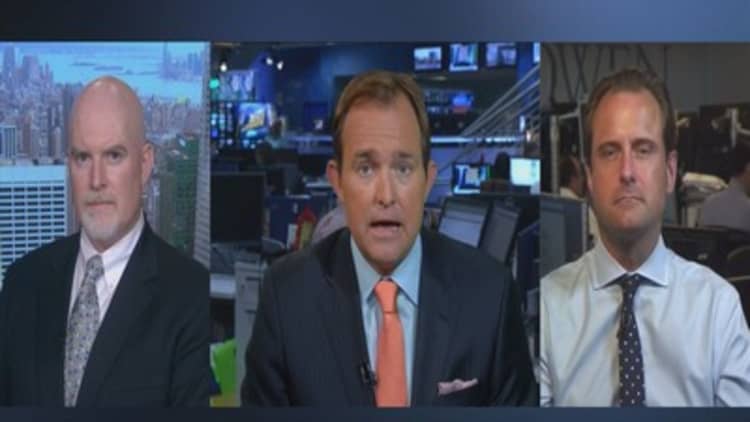
U.S. investors appear to be moving their money overseas.
Data from Lipper show that the SPDR S&P 500 ETF (SPY) had the largest amount of redemptions in 2015 from any one portfolio, at $46.5 billion in the second quarter. Meanwhile, money is mostly flowing into international and European funds, with a $50.5 billion inflow for the developed international markets funds macro group.
Neil Azous, founder of the advisory firm Rareview Macro, said the move into Europe started in late 2014, as the European central bank moved toward quantitative easing. The recent spike in flows to European funds comes from investors who pulled out during Greece's debt negotiations and are now reinvesting that cash, he said.
For those who want to move into European stocks, Azous recommended a long position on the WisdomTree Europe Hedged Equity Fund (HEDJ), which removes currency risk, and a short on the SPDR S&P 500 ETF (SPY).
HEDJ has gained more than 16 percent this year, compared with SPY's 12 percent rise.
"From a growth standpoint, you're coming from a very low base in Europe," Azous said. "And as the repair process continues, the ability for that growth to accelerate from a low base is very much in motion right now."
Meanwhile, investors are moving out of overweight U.S. positions as the Federal Reserve in contrast ends quantitative easing and looks to raise interest rates, Azous said.
But according to some traders, the shift into European stocks could be unwise.
Dennis Davitt of Harvest Volatility Advisors said the price of put options to protect against downside in Europe is about two times the price of the United States, because of increased volatility and risk.
"European stocks are extremely nervous," Davitt said. "They're going to charge you a lot of money to insure that portfolio."
David Seaburg of Cowen & Co. said it won't be long before investors return to an overweight position on domestic funds. He said the U.S. stock market will look much more attractive once the Fed gives a clearer picture of when rates will rise.
"We're getting to the tail end of this trade," Seaburg said Tuesday on CNBC's "Trading Nation." "I think it's more of a selling-the-news-type scenario. When the Fed moves on rates, that's when you exit this trade."
Want to be a part of the Trading Nation? If you'd like to call into our live Monday show, email your name, number, and a question to TradingNation@cnbc.com






